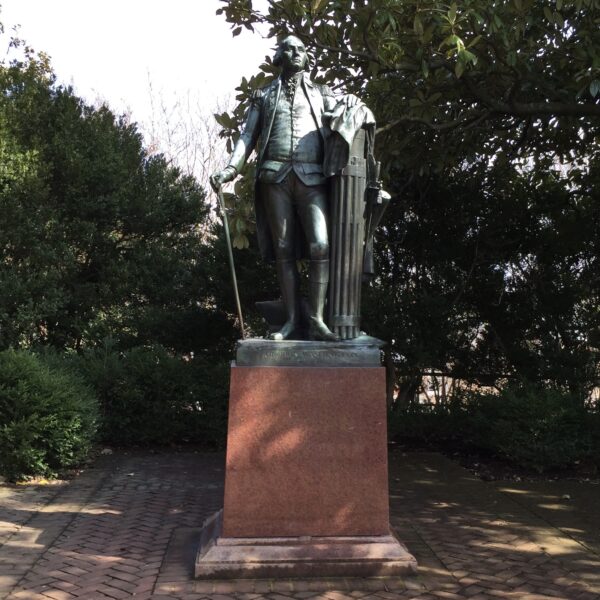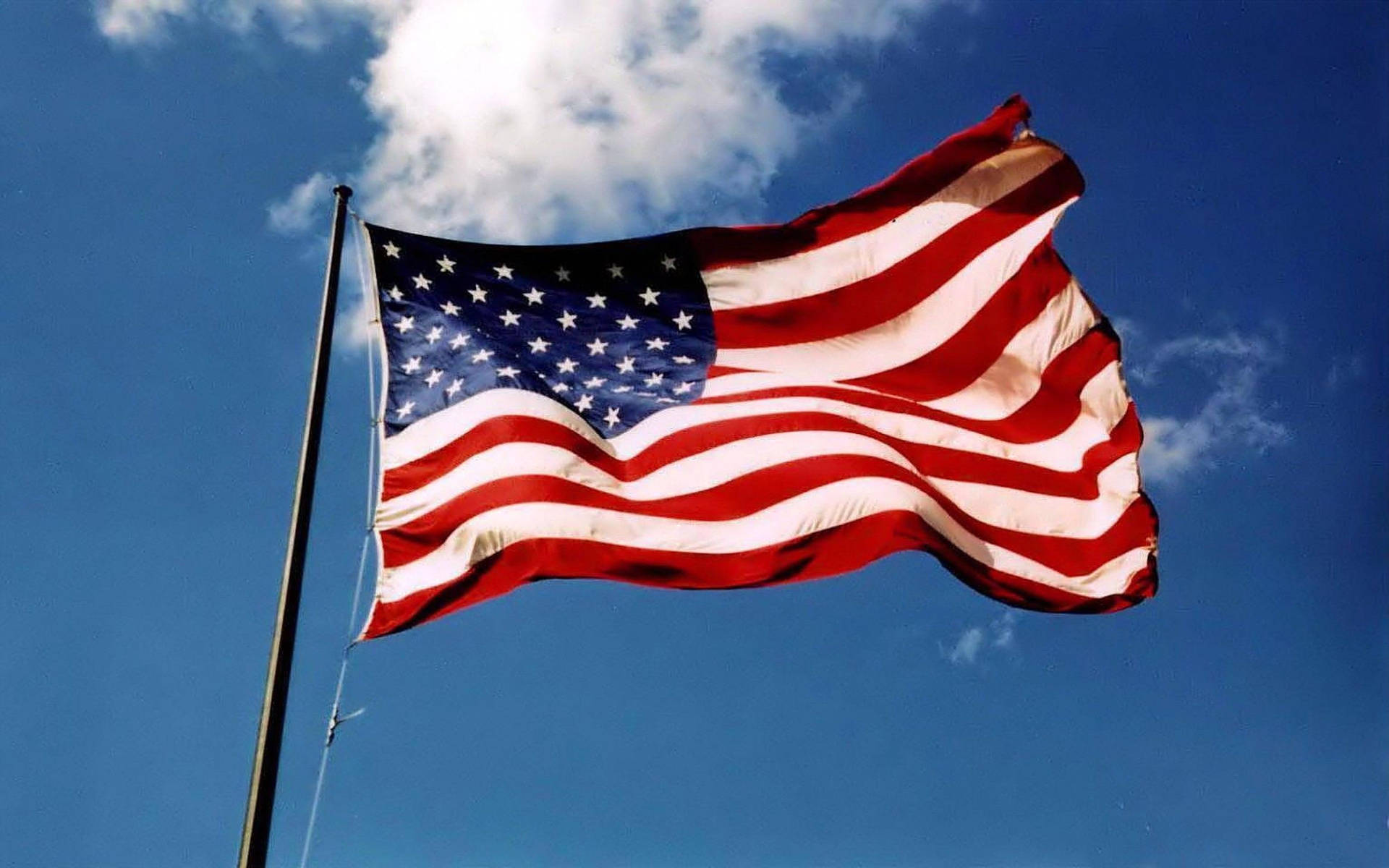patriotic effusion for Independence Day
I have always, I feel, been somewhat deficient in patriotism — I just don’t have the instinct for it, somehow — but listening to the recent Rest Is History series on the American Revolution got my red-white-and-blue blood up. (I say this, by the way, as a fully paid-up Wang — i.e., member of The Rest Is History Club.) George Washington had wooden teeth (ha ha ha) — Benjamin Franklin went around London “dispensing his wisdom” (ha ha ha) — Aren’t the colonists’ complaints obviously bogus? (ha ha ha) — Why do Americans have a holiday celebrating a press release? (ha ha ha) — Thomas Jefferson is a “phrasemaker” and the American Robespierre … wait, what? I don’t seem to recall Jefferson’s presiding over a Reign of Terror.
In general, I think Brits are the least trustworthy commenters on the United States — in any venue, from the left or the right, I avoid such commentary, because I know it will be filled with overconfident generalizations and smug condescension. Both of those faults arise from the writers’ belief that they have as it were a Special Relationship with the U.S.A. and can therefore interpret it authoritatively. (People from other nations might be even more critical but they are less likely to write or speak from that particular variety of smugness.) I think it telling that when Tom and Dominic did a series on the Irish quest for Home Rule they got an Irishman to guide them — Paul Rouse, who was great — and were highly deferential to his judgments, but when it came time to cover the American Revolution they saw no need for an American perspective.
At the very end there was a brief acknowledgment that George Washington did not become a tyrant when he had the opportunity to do so, and that that’s admirable, but then they immediately went on to talk about his owning of slaves. The overall tone of the episodes converged on a kind of ironic mockery, which I found disappointing not just because I’m an American (I think) but mainly because of its inaccuracy. The leaders of that Revolutionary generation were extraordinary men — it’s almost unimaginable that one moment in history, in so small a nation, would produce figures as prodigiously and variously gifted as Franklin, Washington, Adams, Jefferson, and the ever-underrated Madison. (Though Madison was a little too young to have much of a role in the Revolution proper, he was essential thereafter.)
For a better, clearer, juster view, I would recommend John J. Ellis’s excellent Founding Brothers, but even more than that an extraordinary book that is unaccountably out of print: Garry Wills’s Cincinnatus: George Washington and the Enlightenment. No other work that I know of so fascinatingly illuminates the character of George Washington – and the way he was understood by his most thoughtful contemporaries. Thus this statue on the Lawn of the University of Virginia:

Note the fasces, which Washington is about to set aside – you can’t quite see it, but behind him is a plow. If, looking at that statue, you were to turn 180º, you’d see across the Lawn a companion statue, this of a seated Jefferson, gazing contemplatively at Washington — perhaps to admire, but perhaps to make sure Washington does indeed follow the example of Cincinnatus. For it is a model easier to invoke than to imitate.
In this spirit, we might also read an essay from 2021 by my friend Rick Gibson on Washington’s Farewell Address.
Let’s conclude by delivering to these unrepentant monarchists some home truths, as articulated by Jefferson in a letter to John Langdon (1810):
When I observed however that the king of England was a cypher, I did not mean to confine the observation to the mere individual now on that throne. The practice of kings marrying only into the families of kings, has been that of Europe for some centuries. Now, take any race of animals, confine them in idleness & inaction whether in a stye, a stable, or a stateroom, pamper them with high diet, gratify all their sexual appetites, immerse them in sensualities, nourish their passions, let every thing bend before them, & banish whatever might lead them to think, & in a few generations they become all body & no mind: & this too by a law of nature, by that very law by which we are in the constant practice of changing the characters & propensities of the animals we raise for our own purposes. Such is the regimen in raising kings, & in this way they had gone on for centuries. While in Europe, I often amused myself with contemplating the characters of the then reigning sovereigns of Europe. Louis the XVIth was a fool, of my own knowledge, & in despite of the answers made for him at his trial. The king of Spain was a fool, & of Naples the same. They passed their lives in hunting, & dispatched two couriers a week, 1000 miles, to let each other know what game they had killed the preceding days. The king of Sardinia was a fool. All these were Bourbons. The Queen of Portugal, a Braganza, was an idiot by nature & so was the king of Denmark. Their sons, as regents, exercised the powers of government. The king of Prussia, successor to the great Frederic, was a mere hog in body as well as in mind. Gustavus of Sweden, & Joseph of Austria were really crazy, & George of England you know was in a straight waistcoat.
And so on that note: All praise to the Founders, and confusion to degenerate monarchies!

P.S. This is unrelated to the diatribe above, but I can’t resist adding it. Adam Smith, the scholarly guest on the podcast, comments at one point that Benjamin Franklin’s only interest in George Whitefield was in determining the range at which he could project his voice. Franklin was certainly interested in that, but not in that only. Here’s my favorite passage in the whole of Franklin’s Autobiography:
Mr. Whitefield, in leaving us, went preaching all the way thro’ the colonies to Georgia. The settlement of that province had lately been begun, but, instead of being made with hardy, industrious husbandmen, accustomed to labour, the only people fit for such an enterprise, it was with families of broken shop-keepers and other insolvent debtors, many of indolent and idle habits, taken out of the jails, who, being set down in the woods, unqualified for clearing land, and unable to endure the hardships of a new settlement, perished in numbers, leaving many helpless children unprovided for. The sight of their miserable situation inspir’d the benevolent heart of Mr. Whitefield with the idea of building an Orphan House there, in which they might be supported and educated. Returning northward, he preach’d up this charity, and made large collections, for his eloquence had a wonderful power over the hearts and purses of his hearers, of which I myself was an instance.
I did not disapprove of the design, but, as Georgia was then destitute of materials and workmen, and it was proposed to send them from Philadelphia at a great expense, I thought it would have been better to have built the house here, and brought the children to it. This I advis’d; but he was resolute in his first project, rejected my counsel, and I therefore refus’d to contribute. I happened soon after to attend one of his sermons, in the course of which I perceived he intended to finish with a collection, and I silently resolved he should get nothing from me. I had in my pocket a handful of copper money, three or four silver dollars, and five pistoles in gold. As he proceeded I began to soften, and concluded to give the coppers. Another stroke of his oratory made me asham’d of that, and determin’d me to give the silver; and he finish’d so admirably, that I empty’d my pocket wholly into the collector’s dish, gold and all.